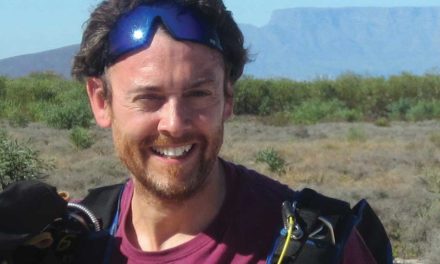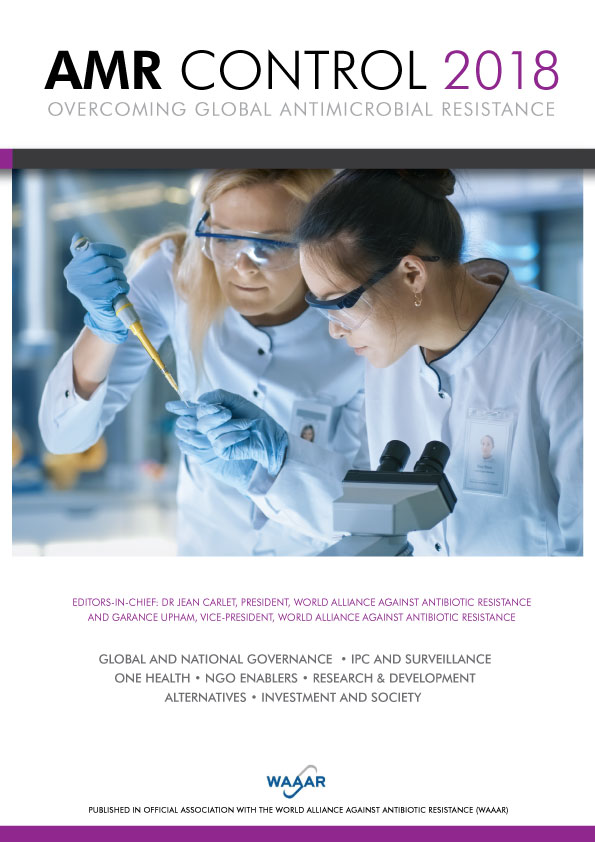We asked a selection of Cancer Control readers around the world to give their considered opinions on what the Sustainable Development Goals (SDSs) would mean for cancer control in practical terms. Their responses are shown below by geographical region.
AFRICA
ETHIOPIA: Zelalem Mengistu, Programme Manager, Mathiwos Wondu-YeEthiopia Cancer Society, Ethiopia
“Our society is heavily involved in tobacco control activities, which is one of the predominant preventable risk factors for cancer and other noncommunicable diseases. It is clearly reflected in SD3.This is a key milestone in mobilizing resources to control the eminent tobacco epidemic and its huge impact. On top of this, SD3 also provides new emphasis for action on noncommunicable diseases.”
ETHIOPIA: Wondu Bekele Woldemariam, General Manager, Mathiwos Wondu-YeEthiopia Cancer Society, Ethiopia
“Thanks to our continuous efforts, we finally managed to develop and officially launch a National Cancer Control Plan here in Ethiopia. We all here are expected to implement the programme and the SDGs will create an enabling environment to decrease the suffering of cancer patients and increase their survival rate”.
GHANA: Lorna A Renner, Head, Paediatric Oncology Unit, Korle-Bu Teaching Hospital, Accra, Ghana
“Sustainable development goals include reducing inequality within and among countries and is highly relevant to paediatric oncology with huge disparities in survival from childhood cancer between highly-developed and under-developed countries, such as mine. This, based on another SDG, requires effective partnerships, in this context between government agencies, the private sector, civil society, development partners and health providers to improve outcomes.”
MOZAMBIQUE: Professor Carla Carrilho, Head, Anatomical Pathology Department, Maputo Central Hospital, Maputo, Mozambique
“Some actions to that will contribute for cancer control in my country: 1. Increased awareness of risk factors for cancer such as tobacco consumption, unhealthy diet and infections. Implement a low cost HPV vaccine national programme to reduce the burden of the cervix cancer. 2. Invest in the strengthening of pathology for early detection and diagnosis with quality (infrastructures, well trained human resources , quality control and telepathology). 3. Create good quality data through the implementation of a cancer registry that will help to prioritize policies at a national level.”
NIGERIA: Dr Yawale Iliyasu, President, West African Division, International Academy of Pathology
“The challenges of cancer control in Nigeria are numerous and multifaceted. They include a clear lack of good policies from the Federal Ministry of Health, a lack of cancer screening centres and a very large and relatively uneducated populace. The SDGs, especially poverty eradication, quality education and partnerships, will go a long way in ameliorating the situation. The Federal Government recently sent two bills to the National Assembly for the establishment of a National Agency for Cancer Control and a National Institute for Cancer Research and Treatment. There is light at the end of the tunnel.”
SENEGAL: Abdoul Aziz Kasse, President, La Ligue Senegalaise Contre Le Tabac, Senegal
“Senegal needs a national 15 year strategic plan, funded by tobacco, alcohol and processed food taxation, including cancer registration, oncology human resources training, behavioural change, strong tobacco control law, national HBV and HPV vaccination, cervical cancer ‘screen and treat’ programmes, access to cure and care by radiation, systemic drugs and supportive care.”
SOUTH AFRICA: Belmira Rodrigues, Managing Director, AORTIC, Rondebosch, South Africa
“If SDG targets 3.4 and 3.7 are properly pursued, most African countries could have: HPV vaccinations programmes, national cancer registries, routine cancer screenings, education on cancer and associated health risks, developed palliative care systems, oncology as a specialty in medical schools, better access to chemotherapy drugs and improved pathology capacity.”
SOUTH AFRICA: Dr Vikash Sewram, Director, African Cancer Institute, Stellenbosch University, South Africa
“The SDGs offer renewed hope for addressing three of the major cancers affecting South Africa and the African Continent at large, viz. breast, cervical and prostate cancers. Commitment to these goals can ensure that adequate financial resources are directed to the most appropriate of programmes (improving coverage of HPV vaccination, early detection and diagnosis), ensuring access to quality and affordable care including access to oncology drugs and the continued investment in research and training to ensure successful implementation of new knowledge in the field.”
SOUTH AFRICA: Elize Joubert, Chief Executive Officer, Cancer Association of South Africa
“The SDGs could facilitate South Africa having a healthcare system which integrates the development of a cancer control programme that will prevent, detect early, cure and provide optimal palliative care. That will include for cancer control a strong, efficient, well-run health system, a system for financing health services, access to essential medicines and technologies and a sufficient capacity of well-trained, motivated health workers.”
TANZANIA: Edda Vuhahula, Senior Lecturer, Department of Pathology, Muhimbili University, Tanzania
“Pathology plays a critical role in guiding clinical assessment but it is not prioritized in most African countries: The 2015 – 2030 SDGs should be used to build capacity for pathologists and laboratory scientists through training and to address quality assurance and quality control issues in cancer diagnosis and treatment.”
UGANDA: Robert Lukande, MB, ChB, MMed (Path), FCPath (ECSA), Histopathologist, Uganda
“I wish there had been a more cancer-focused goal formulated among the SDGs. Goal 3 is too broad and we cannot assume that cancer control will get the priority it deserves. A healthy population is key to realizing the rest of the SDGs. Cancer is undoubtedly a recognized cause of high morbidity and premature mortality in Uganda and cancer control is one way to attain Goal 3: ‘ensure healthy lives and promote well-being for all at all ages’.”
ZAMBIA: Dr Susan Citonje Msadabwe-Chikuni, MBCHB, FC Rad Onc (SA), MMED Rad Onc (Wits), Consultant Clinical and Radiation Oncologist, Cancer Diseases Hospital, Lusaka, Zambia
“The 2015–2030 SDGs will enhance cancer control in Zambia by providing additional support and political will that will help in achieving the targets of the Zambia National Cancer Control Strategic Plan which focuses on equitable and universal access to cancer control programmes which include awareness and prevention, diagnosis, treatment and palliative care.”
ZIMBABWE: Anna Mary Nyakabau, Ministry of Health and Child Welfare, Parirenyatwa Group of Hospitals, Zimbabwe
“The implementation of the SDGs in Zimbabwe would improve the availability of resources to increase awareness on prevention, early detection and treatment of cancer. The majority of cancers in Zimbabwe are infection-caused. Infection control measures including vaccination will go a long way in improving cancer control.”
ZIMBABWE: Professor Margaret Borok, Faculty of Medicine, University of Zimbabwe
“In an overburdened, underfunded health system that characterises our low-resource setting, the possibility of achieving the SDGs nationally has major implications for non-communicable diseases, including cancer. The concerted effort envisaged would underpin an integrated, cohesive approach, ranging from political advocacy to strong leadership and practical investment. The result should strengthen all aspects of cancer control.”
CENTRAL ASIA
KAZAKHSTAN: Professor Dilyara, National Academy of Sciences,Almaty Oncology Centre
“Cancer care in Kazakhstan has a special place in the overall healthcare development programme. While the ultimate goal is the decrease of cancer mortality, the priority goals set for the next five-year period include the countrywide introduction of screening, the improvement of early diagnosis, the wider use of information technology, the education of specialists and the inclusion of palliative care in the context of oncology care.”
EASTERN MEDITERRANEAN
EGYPT: Professor Ahmed Elzawawy, MD, Professor of Clinical Oncology, Suez Canal University; Alsoliman Clinical and Radiation Oncology Centre, Port Said, Egypt; President, ICEDOC and Immediate Past President, AORTIC
“For both Africa and the South and East Mediterranean region, SDG3 means achieving equity in delivering accessible, affordable, well-balanced and better value aspects of sustainable cancer control. It also means adopting realistic priorities, and thoughtful human centred approaches according to local conditions, rather than blindly copying expensive Western models.”
EGYPT: Khaled Kamal, Assistant lecturer in Clinical Oncology, Ain Shams University, Cairo Egypt
“Development of the cancer care health system requires improvements in infrastructure and health education. The managerial perspective of these two points is the critical weak point. A foreign experienced commission supervising their application, and more importantly, their sustainability is mandatory for long-term results.”
LATIN AMERICA
ARGENTINA: Eduardo L Cazap, MD, PhD, FASCO, President, Latin-American & Caribbean Society of Medical Oncology and Past-President, Union for International Cancer Control.
“For the first time, noncommunicable diseases and cancer are included in the global development goals and several of them are part of the Argentinean government’s political platform. Regrettably, the coordination between global or regional objectives is frequently poorly coordinated with the national reality.”
BRAZIL: Professor Isabel do Val Federal, University Fluminense at Medical School, Rio de Janeiro, Brazil
“The problem for Brazil, mainly in the poorest states, is that prevention is considered opportunist, it means that it is based on the necessity for the patient to have an appointment with the gynecologist if she has a problem. On the other hand, the government does not have the control of who is doing her pap or not. We do not have active searching if the result of the pap smear is positive for high grade lesion or cervical cancer.”
CHILE: Cristian A Herrera, MD, MBA, MSc, Head, Department of Strategic Development, Ministry of Health, Chile
“The SDGs represents the challenge for governments of not just enhancing health system performance for addressing cancer control, but also coordinating different sectors and actors with the aim of improving people’s living conditions, which determines cancer development, with a sense of urgency for planetary sustainability and social justice.”
SOUTH ASIA
BHUTAN: Dr Tashi Dendup Wangdi, MBBS, MS, FICS, general Surgeon and surgical oncologist, Department of Surgery, Faculty of Medicine, Jigme Dorji Wangchuck National Referral Hospital, King Khesar University of Medical Sciences, Thimphu, Bhutan
“The Sustainable Development Goals for 2015-2030 are absolutely relevant to cancer control in my country and workplace. As the country progresses economically with an increasing consumption pattern, which may not necessarily be healthy, the end result would be an increasing number of cancer patients. We are at a crossroads where a double burden of disease is emerging where we still have the communicable diseases to treat and now noncommunicable diseases like cancer are surfacing and showing their ugly faces. This increasing trend of cancer patients will be a financial burden to the government and as healthcare is free in the country and it is getting more difficult to provide services due to resource constraints. So the sustainability of free healthcare will be put under pressure as time goes by. Cancer control activities which are still dormant in the country may need to be galvanised in order to meet the future challenges.”
INDIA: Dr V Shanta, Chair Cancer Institute (WIA), Chennai, India
“An emphasis on quality education for all, empowering women and girls, enhanced health financing and reducing inequalities should be the central points of action. These combined can contribute to dispelling myths, increasing awareness (screening for and early detection of preventable cancers) and reducing existing gaps (urban versus rural) in availability/access/affordability of standard diagnosis and treatment in India by 2030.”
INDIA: M R Rajagopal, MD and Founder Chairman, Pallium, India
“In India where health expenditure is out-of-pocket for 80% of the population and where only 36% have access to cancer control, the SDG targets offer a long hard struggle. There is no alternative to sustained and persistent advocacy with strong community engagement.”
INDIA: Dr Gayatri Palat, Programme Director, Palliative Care Access Programme, India
“Cancer is fast becoming the major burden and cause of mortality in India. The goal should be to reduce premature mortality from cancer by developing a comprehensive cancer control programme consisting of a population-based cancer registry and surveillance, reduction in risk factors and stigma, screening and early detection, universal access to accurate diagnosis, quality multimodal treatment, palliative care and universal access to essential drugs including oral morphine.“
SOUTH EAST ASIA
MALAYSIA: Dr Saunthari Somasundaram, President and Medical Director, National Cancer Society, Malaysia
“The recognition of NCD(s) challenges in SDGs has boosted the visibility as well as magnitude of this emerging issue. As a result, the Malaysian Government is increasing its urgency in critically reviewing and identifying gaps in the health system. This will hopefully lead to greater investments in cancer control. Also, engaging Malaysian societal organizations about the SDGs have led to more collaborative as well as coordinated efforts, strengthening partnerships and underpinning a change in the attitude of working individually (but separately).”






